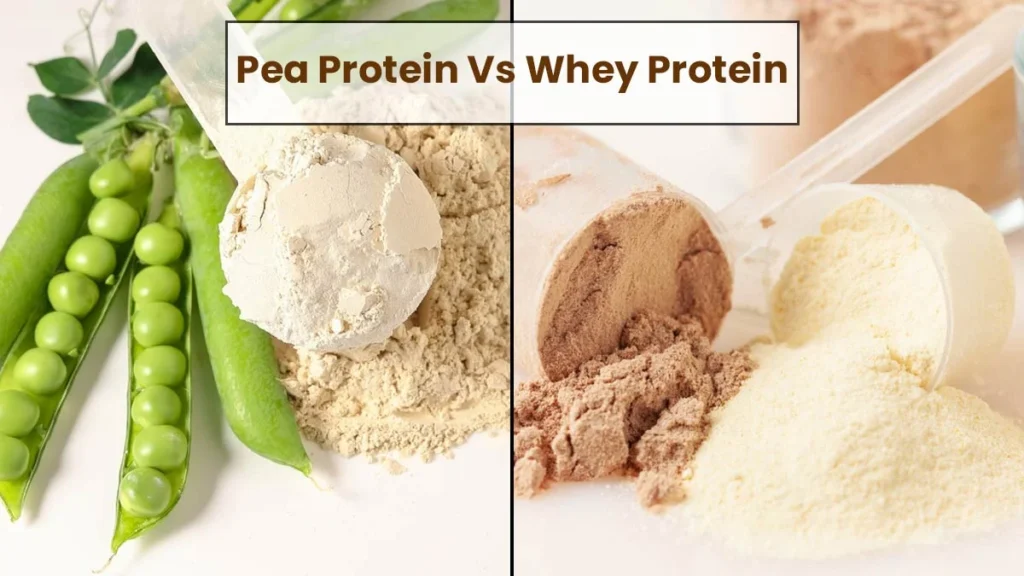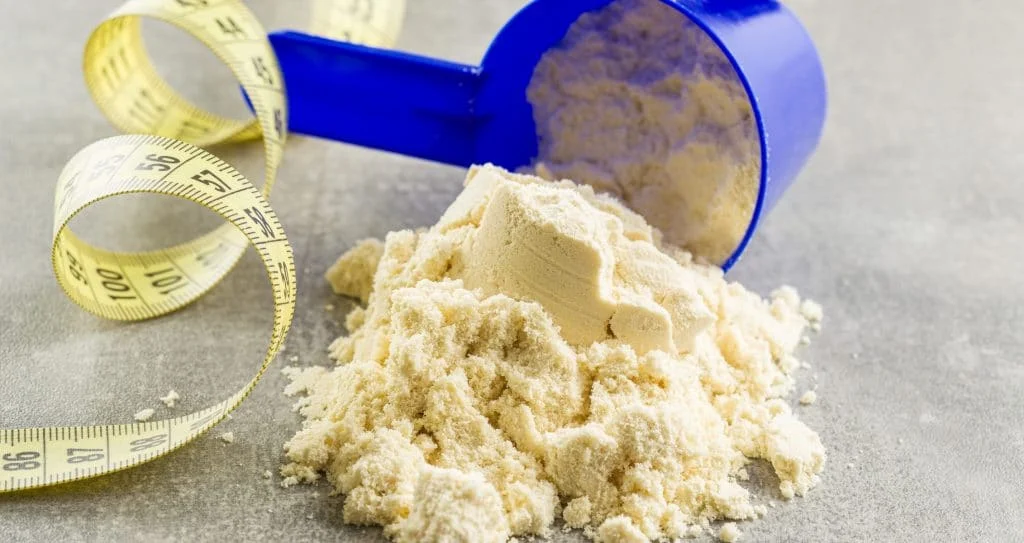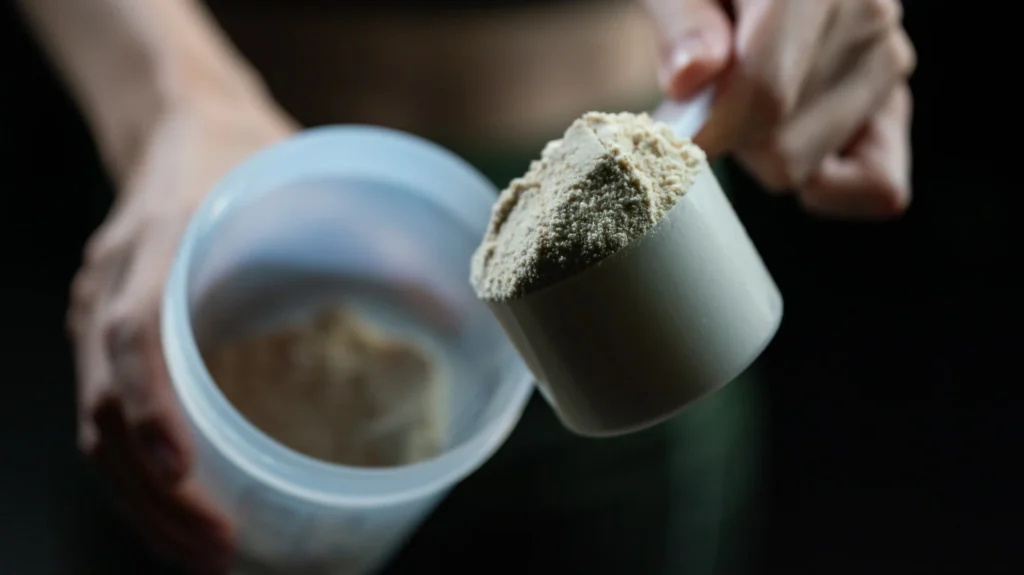In the world of fitness supplements, the battle for protein powder supremacy never ends. At the center of the ring, two contenders consistently dominate the stage: one is the long-reigning, undisputed champion—Whey Protein Powder, famed for its rapid absorption and powerful muscle-building effects; the other is the rapidly rising plant-based challenger—Pea Protein Powder, lauded for its complete amino acid profile and allergy-friendly properties.
For decades, fitness enthusiasts have debated: which one is truly better? Does whey’s royal status hold up to scientific scrutiny? And does choosing the alternative, pea protein, mean you’re compromising on results?
If you’re standing in the supplement aisle paralyzed by choice, this guide is for you. We will put these two protein giants head-to-head in a multi-round, evidence-based showdown. After reading, you won’t just know which is better—you’ll understand which one is the undisputed champion for you.
The Quick Verdict: Core Conclusions at a Glance
- On Muscle Stimulation Speed: Whey protein holds a slight edge due to its higher leucine content and faster digestion speed, making it theoretically optimal for immediate post-workout recovery.
- On Long-Term Muscle Gains: When total daily protein intake is sufficient, high-quality research shows no significant difference between pea and whey protein for long-term muscle growth and strength development.
- The Final Choice is Personal: The best protein powder ultimately depends on your dietary preferences (vegan vs. dairy), budget, digestive tolerance, and specific health goals.
Meet the Contenders: What Are Pea and Whey Protein?
Whey Protein: The King of Dairy-Based Proteins Whey is one of the two major proteins found in milk (the other is casein). During the cheesemaking process, whey is separated as a liquid byproduct, which is then filtered and dried into a powder. It primarily comes in three forms:
- Whey Protein Concentrate (WPC): Contains about 70-80% protein, along with some lactose and fat.
- Whey Protein Isolate (WPI): Further processed to remove most of the lactose and fat, resulting in a protein content of 90% or higher. It’s suitable for those with mild lactose intolerance.
- Whey Protein Hydrolysate (WPH): Pre-digested for the fastest possible absorption, but it comes with a higher price tag and can have a more bitter taste.
Pea Protein: The Plant-Based Rising Star Pea protein isolate is derived from defatted yellow peas. Through processing, nearly all carbohydrates and fats are removed to “isolate” the protein. The final powder can similarly reach a protein content of 80-90%, making it one of the highest-quality plant-based protein sources available.
Round 1: The Nutritional Showdown
A protein’s value is determined by its building blocks—amino acids. Let’s see how their raw power compares.
- Amino Acid Profile: Both whey and pea protein are “complete proteins,” meaning they contain all nine essential amino acids that the body cannot synthesize on its own. This is a huge victory for pea protein, as many plant proteins are incomplete.
- The BCAA Content & “Leucine” Factor: Among the essential amino acids, three are particularly crucial for muscle growth: the Branched-Chain Amino Acids (BCAAs)—leucine, isoleucine, and valine. Of these, Leucine is the undisputed star. Think of it as the “ignition key” that starts your body’s “muscle-building engine” (a process called Muscle Protein Synthesis, or MPS). To effectively trigger MPS, you need to reach a certain “leucine threshold.”This is where whey protein lands its first heavy punch.
- Whey Protein: A typical 25-gram serving of whey protein provides approximately 2.7-3.0 grams of leucine.
- Pea Protein: A 25-gram serving of pea protein provides about 2.0-2.2 grams of leucine.
While both are good sources, whey protein consistently has about 25-30% more leucine per gram, allowing it to turn that muscle-building ignition key more forcefully.
- Protein Quality Score: Scientists use scores like PDCAAS and DIAAS to rate a protein’s digestibility and quality. Both whey and pea protein isolate score exceptionally well, with a PDCAAS score of 1.0 (the highest possible), indicating excellent quality and digestibility for both.
- Micronutrient Differences: Pea protein is an excellent source of iron, with a single serving often meeting over 30% of the daily recommended intake, which is especially important for vegans. Whey protein, on the other hand, is rich in calcium.
Round 1 Winner: Whey Protein (by a narrow margin, due to its superior leucine content).
Round 2: The Main Event – Muscle Growth and Strength Performance
This is the round that matters most to athletes. How do these nutritional differences translate into real-world results?
- Digestion Speed and Muscle Protein Synthesis (MPS): Whey protein is famous for its rapid digestion speed. It causes a sharp, quick spike in blood amino acid levels after consumption, powerfully stimulating MPS. Pea protein has a more moderate digestion rate. This makes whey the theoretical winner for a post-workout shake when you want to kickstart recovery as quickly as possible.
- What Do Head-to-Head Studies on Long-Term Gains Say? A rapid spike in MPS is great, but does it lead to more muscle and strength over weeks and months of training? This is where the fight gets interesting. To answer this, we must look at higher levels of evidence like meta-analyses.
- Case Study: 2019 Direct Comparison of Muscle & Strength Gains
A study published in the peer-reviewed journal Sports in 2019 was designed to directly compare the effects of these two proteins. Researchers recruited participants undergoing an 8-week High-Intensity Functional Training (HIFT) program and randomly assigned them to supplement with either whey protein or pea protein.
Before and after the 8-week program, the researchers measured their body composition, muscle thickness, strength, and athletic performance. The final conclusion was: across all measured metrics, including lean body mass, muscle thickness, and strength gains, there were no statistically significant differences between the two groups.
This study, and others like it, provide strong evidence that despite short-term differences in absorption, as long as total daily protein intake is sufficient, pea protein is just as effective as whey protein in supporting long-term muscle adaptations.
Round 2 Winner: Draw. Whey wins the “sprint” (short-term MPS stimulation), but pea protein keeps pace in the “marathon” (long-term muscle gains).
Round 3: Digestion, Allergies, and Overall Health
A good protein powder should support your health, not detract from it.
- The Digestion Dilemma: Lactose Intolerance vs. Bloating
- Whey’s Weakness: Lactose. Whey concentrate contains a certain amount of lactose, which can cause bloating, gas, and diarrhea in individuals with lactose intolerance. While whey isolate has most of the lactose removed, it can still cause issues for highly sensitive people.
- Pea’s Weakness: Pea protein is lactose-free, but some people may experience bloating due to certain oligosaccharides. However, high-quality pea isolates have most of these compounds removed and are generally very easy to digest.
- Allergen Potential: Dairy is a common allergen. Pea, on the other hand, is a hypoallergenic food, making it a very safe choice for those with allergies to dairy or soy.
- Benefits Beyond Muscle:
- Satiety: Studies suggest that pea protein may be more effective than whey at promoting a feeling of fullness, which can be an advantage for those managing their weight.
- Heart Health: As a plant-based protein, pea protein is cholesterol-free and rich in arginine, an amino acid beneficial for cardiovascular health.
Round 3 Winner: Pea Protein (due to its hypoallergenic nature, being lactose-free, and its potential advantages in satiety).
Round 4: The Practicality Showdown – Taste, Cost, and Sustainability
- The Flavor and Texture Battle: Traditionally, whey protein wins this category. It has a more neutral flavor and a smoother, creamier texture. Pea protein has historically been criticized for a “beany” or “earthy” aftertaste and a gritty texture. However, technology has advanced, and many top-tier pea protein brands have significantly improved their flavor and mixability.
- Cost-Effectiveness: Price Per Gram of Protein: In most cases, pea protein is more cost-effective than an equivalent whey protein isolate. For users who supplement with protein daily, this cost saving can be substantial over time.
- Environmental Impact: The cultivation of peas requires significantly less water and land than dairy farming, and its carbon footprint is much lower. From a sustainability perspective, pea protein is the more environmentally friendly choice.
Round 4 Winner: Pea Protein (wins on price and sustainability, with the taste gap narrowing).
The Final Verdict: Which Protein Powder Is the Champion for YOU?
There is no single winner. The victor is the one that best fits your body, your goals, and your values. Use this decision guide to choose your champion.
🏆 Choose Whey Protein If:
- You prioritize the fastest possible muscle recovery as your number one goal.
- You have no issues with dairy or lactose intolerance.
- You have very high standards for a smooth, creamy taste and texture.
- Your budget is flexible.
🏆 Choose Pea Protein If:
- You are a vegan or follow a plant-based diet.
- You have lactose intolerance or a dairy allergy.
- You are looking for a more cost-effective option for long-term use.
- You are concerned about the sustainability and environmental impact of your products.
- You understand that for long-term muscle gains, it is just as effective as whey.
Frequently Asked Questions (FAQ)
1. Is pea protein an “incomplete” protein?
No, this is a common misconception. Pea protein is a complete protein, as it contains all nine essential amino acids. However, it is relatively low in one of them, methionine. For a well-rounded diet, this is not a concern, as methionine is abundant in other foods like rice, nuts, and seeds. This is why many advanced plant-based users mix pea protein with rice protein to create a “perfect” amino acid profile comparable to whey.
2. Do I need to take more pea protein to get the same muscle-building effect as whey?
Because whey has a higher leucine content, it takes a slightly smaller serving of whey to hit the “leucine threshold” that optimally stimulates muscle protein synthesis. You might need a slightly larger scoop of pea protein (e.g., 30-35 grams instead of 25-30 grams) to get the same amount of leucine. However, as long-term studies show, as long as your total protein intake is adequate, this small difference doesn’t seem to affect overall muscle and strength gains.
3. Which one tastes better?
Taste is subjective, but most people agree that whey protein generally has a more neutral and palatable flavor. However, pea protein technology has improved dramatically. Many brands now offer flavored pea proteins that are smooth and delicious, often using natural sweeteners like stevia or monk fruit. It’s best to try a sample if you’re concerned about the taste.
4. Is one better for weight loss?
Both can be effective tools for weight loss by helping you feel full and preserving muscle mass during a calorie deficit. Some studies suggest that pea protein may have a slight edge in promoting satiety (the feeling of fullness), which could make it easier to control your appetite and overall calorie intake.
5. Can I mix pea and whey protein?
Absolutely. There is no harm in mixing them. Some people do this to get the benefits of both: the rapid absorption of whey and the iron content and sustainability of pea protein. However, for most people, it’s simpler and more cost-effective to choose one that best fits their primary needs.
For Further Reading and Research
To explore the science and verify the information in this article, please consult these authoritative resources:
Examine.com: An independent, unbiased resource that analyzes scientific research on thousands of supplements and nutrition topics.
PubMed – National Library of Medicine: You can find the original research paper on the muscle and strength comparison cited in this article here.
The Effects of Whey vs. Pea Protein on Physical Adaptations (Sports, 2019)
Healthline: A trusted health information portal that provides comprehensive, evidence-based articles on nutrition and fitness.





